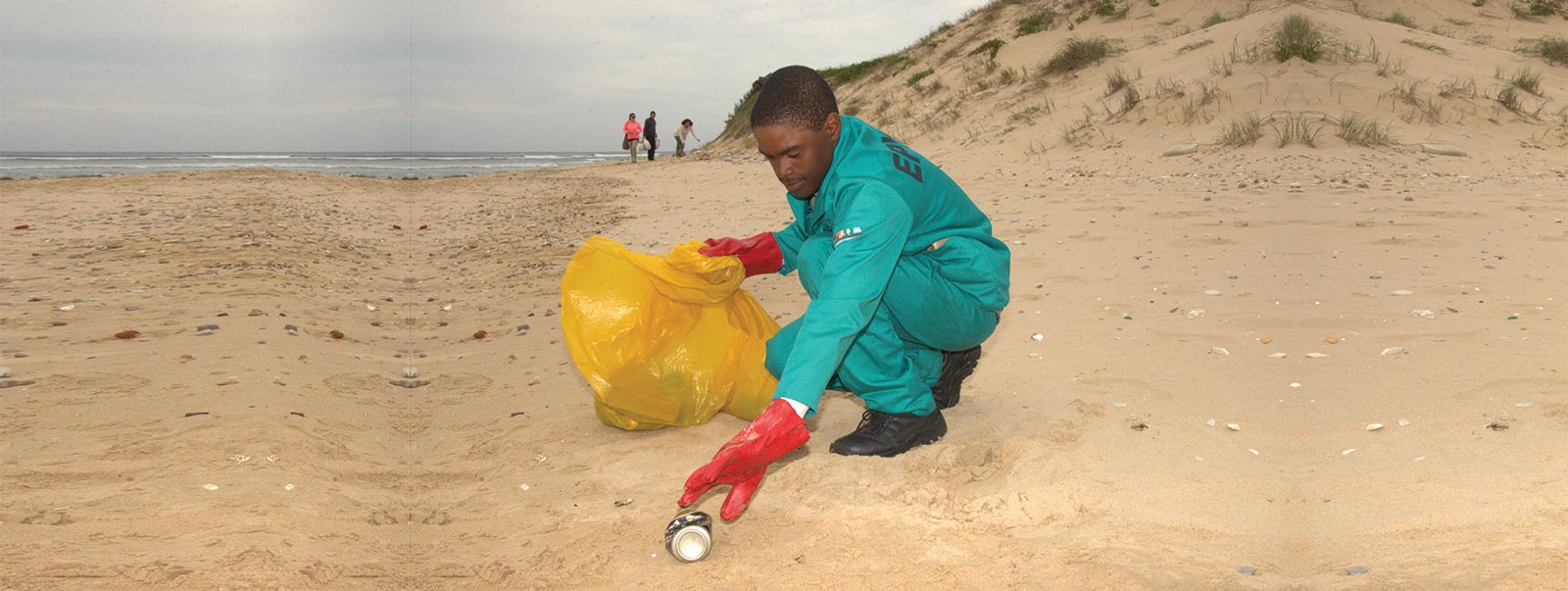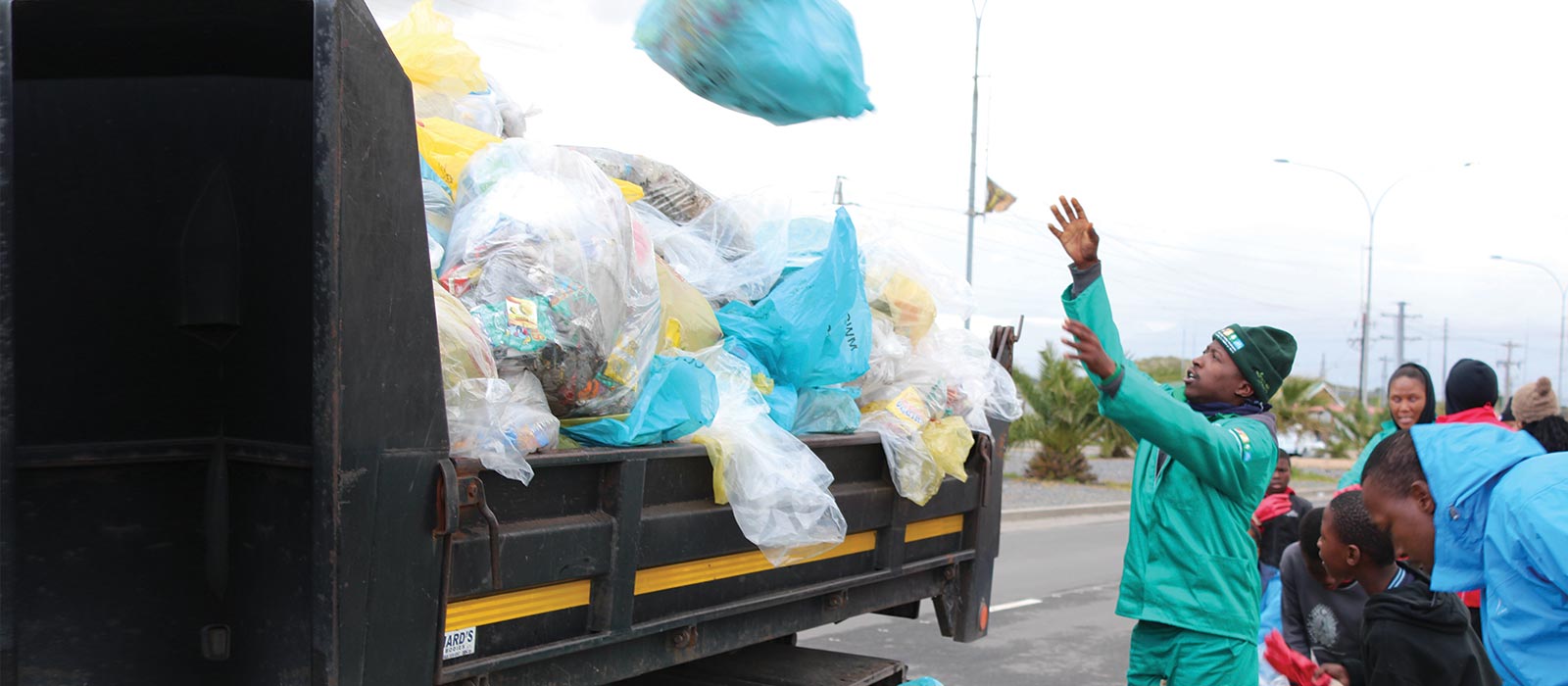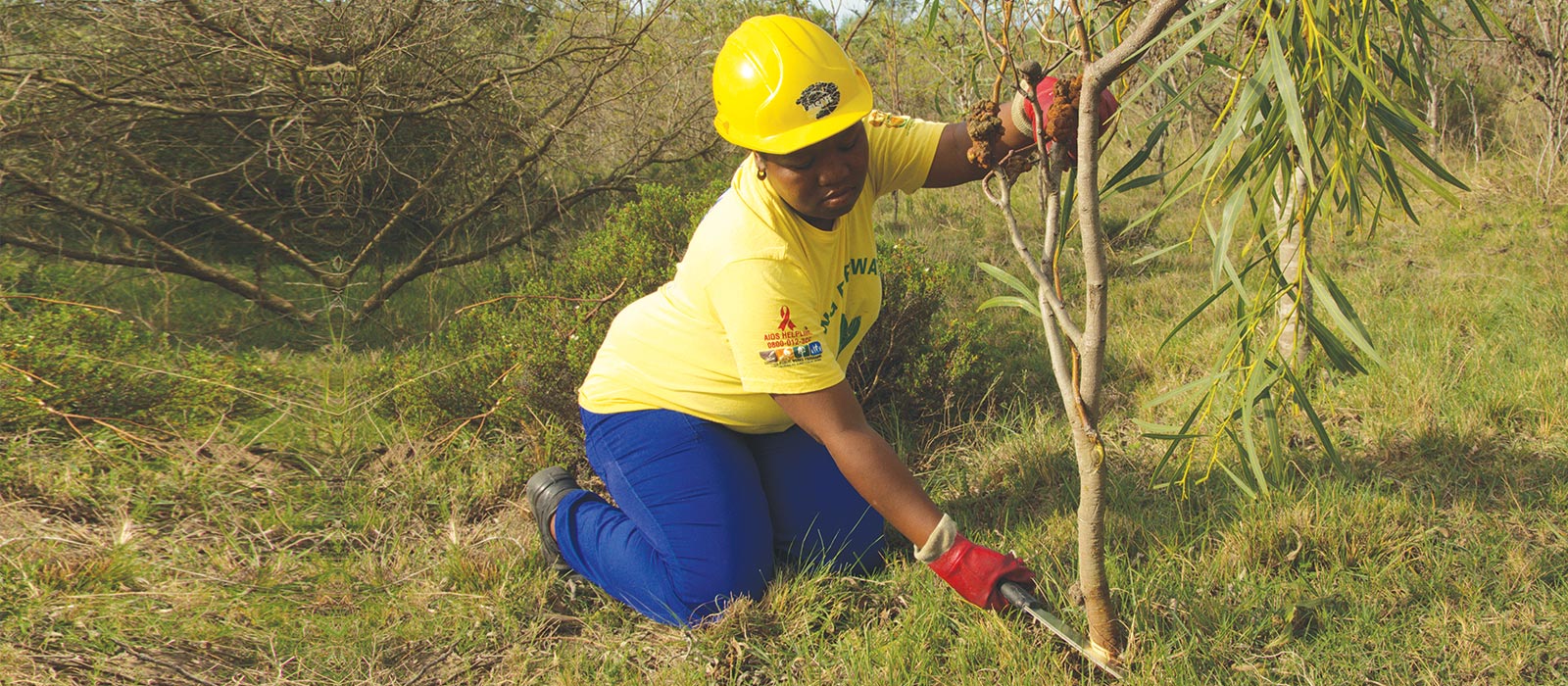The Environmental Programmes (EP) Branch is responsible for implementing the Department of Forestry, Fisheries, and the Environment (DFFE) mandate through the Expanded Public Works Programme (EPWP) approach. As a public employment intervention, the EPWP contributes towards addressing unemployment, poverty, and inequality. EP liaises with other branches of the department and, where possible, ensures the implementation of policy commitments through the labour-intensive EPWP approach. In its implementation activities, EP prioritizes compliance with the national demographic targets of 60% women, 55% youth, and 2% people living with disabilities. In job creation, EP integrates skills development and supports the development of small, medium, and micro enterprises (SMMEs). EP implements its projects through service providers and using its in-house project management capacity.
The EP Branch, through the Departmental Strategic Plan, contributes to the following outcomes:
- More decent jobs are created and sustained, with youth, women, and persons with disabilities prioritised.
- Ecosystems were rehabilitated and managed.
- Integrated fire management,
- Infrastructure, adaptation, disaster risk reduction, and
- Healthy, clean, and safe coastal environment
FUNCTIONS OF THE ENVIRONMENTAL PROGRAMMES
The Chief Directorates provide strategic leadership, oversight, and accountability with respect to the EP in all nine provinces of the country, with these following functions:
Oversee and provide strategic leadership for EP,
Oversee the implementation of the EP portfolio,
Ensure operational efficiencies for EP and
Ensure capacity and contractor development for EP
The EP Branch has four Chief Directorates, namely three (3) implementation regions (1, 2, and 3) and the EPWP Environment and Culture Sector Coordination and Quality Management. Region 1 comprises Limpopo, Mpumalanga, and the North-West. Region 2 comprises the Eastern and Western Capes and KwaZulu-Natal. Region 3 is made up of the Free State, Gauteng, and the Northern Cape. The three regions implement the EP infrastructure, non-infrastructure, and youth empowerment and development projects throughout the country. The EPWP Environment and Culture Sector Coordination and Quality Management (SC & QM) provides technical support and quality management to EP Regions 1, 2, and 3.
The SC &QM Chief Directorate oversees the coordination of the EPWP Environment and Culture sector mandate of the DFFE, which incorporates planning, reporting, monitoring, and evaluation programmes and projects, with the following functions:
-Manage EPWP coordination and implementation of monitoring, evaluation, and reporting to support the branch and the EPWP Environment and Culture sector.
-Manage the implementation and compliance of Safety, Health, Environment, and Quality (SHEQ) in EP projects,
-Manage the technical support and planning functions of EP for all infrastructure and non-infrastructure projects,
-Manage and coordinate environmental management support programmes at the local government level and
-Develop, implement, and manage Environmental Programme branch EPWP contractors and business development initiatives and models and the progressive growth towards sustainable enterprises.
To ensure efficient project management, EP collaborates with public entities, municipalities, and national and provincial departments. The branch also engages with academia, community-based organisations (CBOs), non-governmental organisations (NGOs), community property associations (CPAs), traditional authorities, etc. in implementing its projects. Other stakeholders include EPWP participants, service providers, and owning entities.
The implementation approach for EP projects is based on three implementation models, namely, i) infrastructure, ii) non-infrastructure, and iii) youth empowerment and development, as discussed below.
1.Infrastructure projects are built-environment projects that contribute towards environmental protection, conservation, and sustainability. These projects employ a combination of conventional construction methods and labour-intensive methods. The planning of these projects is carried out by Built Environment Professionals, while the construction is carried out by contractors registered with the Construction Industry Development Board (CIDB).
2. Non-infrastructure projects refer to labour-intensive projects with minimal or no infrastructure and construction components, focusing on the large intake of participants under the EPWP. These projects support the departmental mandate and national development goals in ensuring better environmental management, natural resource management, skills development, and poverty reduction. The main sub-programmes in this portfolio include Working for Water, Working for Land, Working for the Coast, Working on Fire, Working for Wetlands, and Working on Waste
3. Youth Empowerment and Development (YED): these are projects that promote youth participation in socio-economic growth for their optimum development as individuals and members of society. The objective of this model is to address youth unemployment through the creation of temporary jobs and skills development opportunities that intend to increase the chances of youth employability and/or progression to entrepreneurship. They promote the creation of pathways through experiential training, community services, further education and training, as well as exit opportunities.







